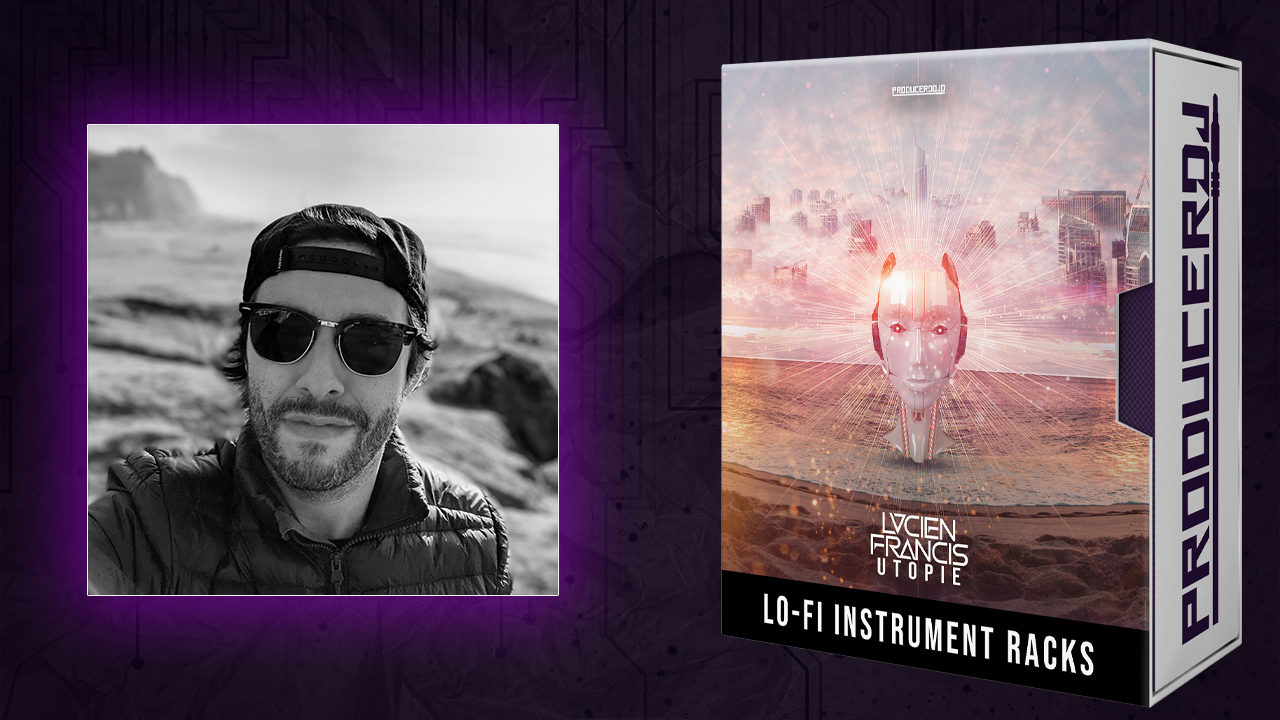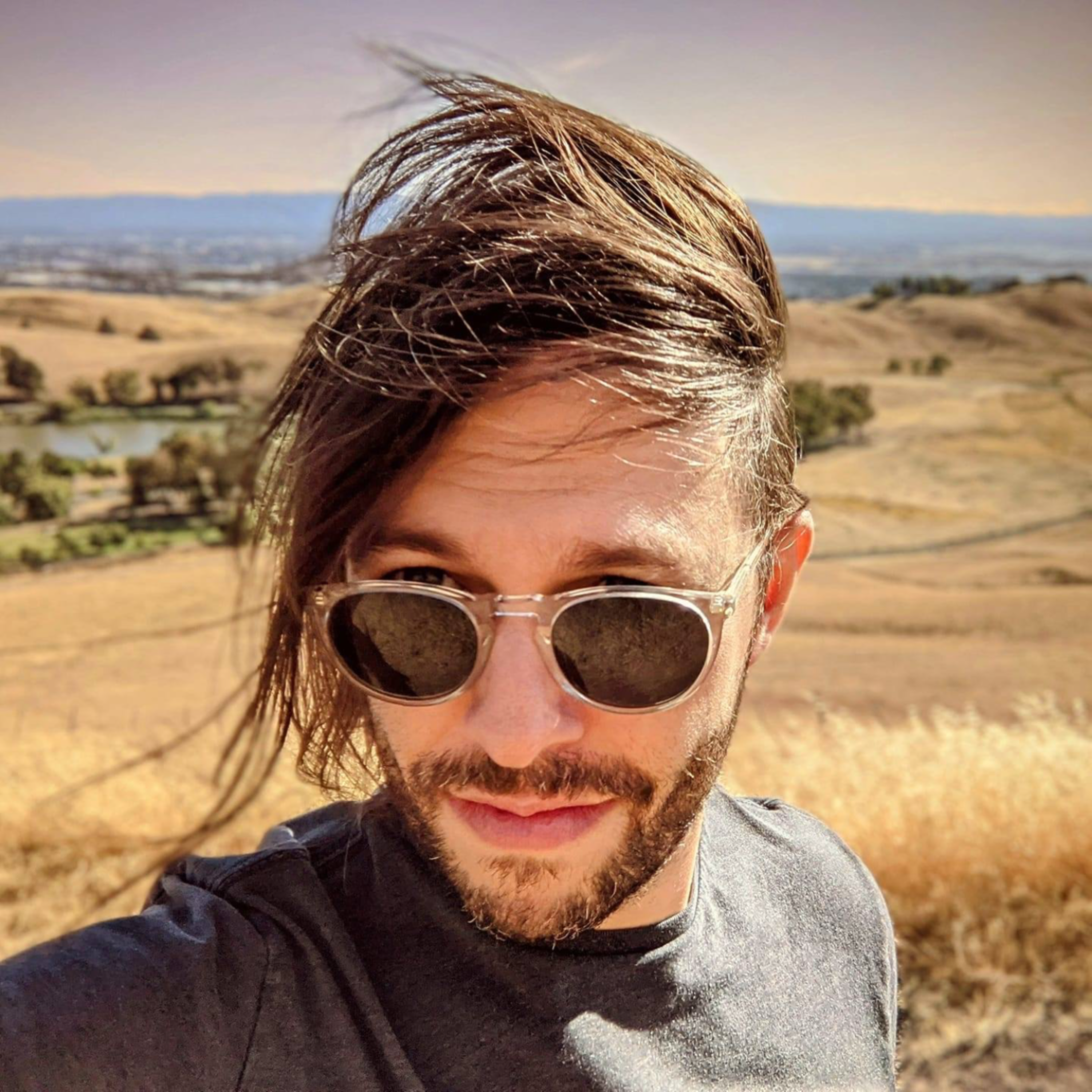The Making of the Lucien Francis UTOPIE EP and Lo Fi Instrument Racks
Lucas, congratulations on the release of the Lucen Francis Utopie EP! How much time did it take for you to complete the EP in full and what is the story behind “Utopie?”
Thank you very much, I’ll be forever grateful to the Dojo. Great question as there are three distinct timelines at play:
1. Life: To me, Utopie represents the turning point where I didn’t succumb to the challenges I endured in life, but turned them into opportunities for growth, empathy and most importantly, learning to accept love and help from others.
2. The Dojo journey: my first contact with the Dojo was probably unique as I jumped straight into the “Week at the Dojo” at Dylan’s place in LA. Up until that point, I played music as a hobby and had a good amount of experience producing in Ableton; however, I had NO idea how to put everything together to effectively make a track. Dylan showed me what I had to work on and I signed up for the Class of 808 next.
While at the Dojo HQ, I was lucky enough to meet Moonsplatta and 6TH STREET in person and I’ve been working with them as mentors ever since.
The goal setting, monthly coaching, TWD and track feedback empowered me to get to Utopie in about one year with the Dojo.
3. Utopie: In the summer of 2020 I reconnected with my childhood best friend, resparking my dream to finally release music. He sent me a couple of guitar recordings and I thought, why not? So I started chopping the sounds, creating new instruments, progressions, melodies, effects and two hours later I had Breakfast In Paris pretty much done. We repeated this process 3-4 times, and I really liked where it was going. That gave me confidence to write more tracks using different types of “sparks”. All and all, I’d say Utopie took about a day of combined effort to be produced.
Do you have a favorite song on the EP and why?
My favorite song is “Game Over” because it truly represents closure and the completion of a cycle, opening up a whole new world of possibilities while making the listener nostalgic for the experience. It does make me feel a little bit conflicted that it’s so short, but ultimately it makes me commit to keep making music.
What are some of your favorite approaches for quickly getting a great idea down in the DAW?
I like to keep in mind something I heard from Dylan hundreds of times: the drop pays the bills. So, I start by turning the spark (which can be a melody line in my head or a sample) into the face, and then writing a super loop right away.
I spend some time on sound selection (by referencing an artist or song), then adding all core elements one by one while mixing them on the fly: kick, sub/top bass, snares, lead melody if any, hats and percs, other melodic elements and so on.
In 15-20 minutes I’ll know if the track has potential, in which case I save a copy and start arranging different parts using pretty much the same template (intro, 1st drop, break, 2nd drop and outro). I’ll leverage techniques such as the loop menu recipe and PMRD (Present, Modify, Repeat, Destroy) to quickly get enough variation for a whole song.
Then it’s just about polishing things up.
How do you approach Collabs? Do you have any best practices to share?
My only successful experiences with collabs so far relate to someone sending over a spark, face, riff or vocal, and I produce the track independently while getting frequent feedback from the other person.
I actually think this is a great way to write tracks more effectively because you start with someone else’s idea, naturally constraining you into a limited creative path that eliminates a lot of difficult decisions and detaches you from the outcome at the same time.
I would love to collaborate more going forward and try different approaches!

Tell us about your new Product – Utopie Lo Fi Instrument Racks now available in the Producer DJ marketplace.
I put together a few lo-fi instrument racks that were used throughout the whole EP. The Utopie Racks Collection provides you with a simple yet versatile set of lo-fi instruments modeled after classic instruments from the 70s and 80s combined with modern sound design techniques:
- Electric Piano
- Classic Piano
- Organ
- Strings (Analog)
- Lead (Analog)
- Lofi Flute
- Gritty Sub
With self-explanatory, intuitive macro controls, all racks were built with a variety of Ableton stock plug-ins such as Echo, Frequency Shifter, Erosion, Saturator and Redux to create a vast landscape of vintage, tape-wobbly, lush, warm and eroded sounds. Each effect was fine-tuned for each rack in order to maximize the creative possibilities especially when automation is involved (for example, try playing with the Utopie Organ’s “Leslie & Drive” knob).
The Utopie racks also leverage a few key Max For Live devices such as the Humanizer, which randomizes the timing of midi notes in similar ways to how a human being would play them. Most racks have a “Human Touch” knob which increases the amount of both the Humanizer device and a velocity randomizer effect.
Have fun!
Who are you listening to for inspiration these days?
These days I’ve been listening to a lot of 80’s Synthpop music (for example: Alphaville) as well as random/obscure City Pop, Synthwave and Cyberpunk artists. I’ve been learning a lot of cool stuff, for example combining chord progressions and drum processing techniques from 80’s music with a Cyberpunk bassline.
What are your top 5 favorite VST’s at the moment?
Ableton’s Wavetable: Been having a lot of fun making 80’s bass and lead sounds. The Unison capabilities are awesome for widening things nicely (example: Shimmer or Position Spread).
gClip: I use it to remove peaks from individual tracks, busses and the master channel.
Gullfoss: Besides polishing up the final mixdown, it helps you learn what’s wrong with your mix if you watch what it’s doing in real time.
Soothe2: My go-to dynamic EQ but I love the side-chain functionality to separate channels in cleaner and more creative ways than regular EQ/compression.
Ozone Imager: I rediscovered this plug-in for it’s clean stereo sound. I also use Wider by Infected Mushroom for heavier music as it colors the sound a bit in my opinion.
What can we expect from Lucien Francis in 2021?
I wish to establish myself as an artist and hope to continue releasing music, especially all this new 80’s stuff I’ve been working on. I’m even more excited, and humbled, to start teaching at the Dojo as a Sensei and finally give back to the community that supported me so much.
I also want to learn how to build and grow my fan base and develop basic music promotion skills, which is something I have very little experience with.
Is there anything else that you would like to share with us?
I’d like to share some of the key philosophical lessons I learned along the way:
- Write the music that YOU want to hear. Nothing else matters.
- Don’t be afraid to make a fool of yourself – you only grow with honest feedback.
- Find and leverage your differentials (e.g for me, playing Jazz piano in the past), even if they are not “popular” amongst your peers.
- Stay in a permanent state of love with your unwritten songs.
- Take care of your mental health. It’s OK to take breaks, it’s OK to fail, it’s OK to suck. You let go and everything connects all of a sudden.
Relevant Links
Stream/Download theLucien Francis Utopie EP here.
Follow Lucien Francis on Social Media: FB, TW, IG, SC, SP
Buy the New Lucien Francis Utopie Lo Fi Instrument Racks here.

